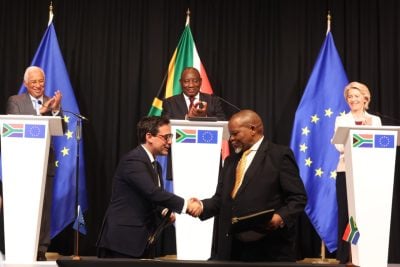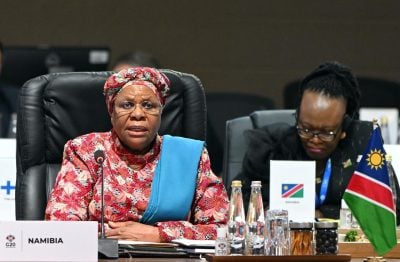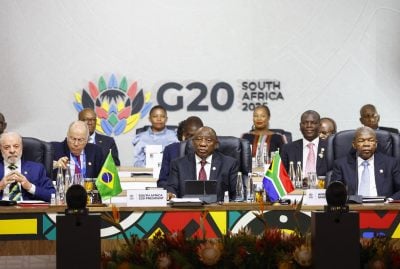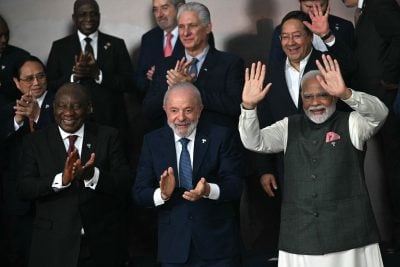Nigeria’s 2023 general election was one in which technology was supposed to outsmart dubious politicians and give the electorate the free elections they always yearned for but never got.
Biometric authentication was to eliminate unqualified voters and multiple voting. Vote tallies were to be transmitted from electronic devices, specifically designed for the elections, to a central server operated by Nigeria’s Independent National Election Commission (INEC). This was to take care of ballot snatching, stuffing and falsification of figures that were all too common in previous elections.
To ensure everything was above board, INEC signed up to tech giant Amazon Web Services to host its servers where election results would be uploaded electronically from polling units. Under a new electoral law passed ahead of the vote, the voting umpire was empowered to deploy real-time electronic transmission of results to a portal to be viewed publicly on election day to guarantee the transparency of the process.
‘Technical hitches’ delay results
But on election day something else happened. First, there were reports that electoral officials wouldn’t or couldn’t upload the polling units’ results. Some officials reported that passwords given to them to transmit the presidential results failed at the critical moment, while those for the legislative elections that took place the same day worked seamlessly.
When the first presidential results came eventually at 8pm, eight hours after voting was concluded in many parts of the country, some of them weren’t legible or were pictures of people and other irrelevant objects. Almost 24 hours later, INEC issued a statement that “technical hitches” prevented the upload of results.
Not many believed the statement, least of all the opposition parties, which called for a suspension of the process and accused the umpire of deliberately shutting down transmission of results to manipulate the votes. The electoral body ignored their complaints and went ahead to announce Bola Tinubu of the ruling All Progressives Congress (APC) as the winner.
At the time INEC declared Tinubu the winner, a substantial number of the results hadn’t been uploaded and INEC so far hasn’t conclusively shown how it arrived at the figures by which it determined the winner.
Credibility of elections undermined
That failure to upload results as expected “eliminated the most important guarantee of transparency and credibility of the 2023 elections,” the Nigerian Civil Society Situation Room, a coalition of more than one hundred rights and civic groups that monitored the vote, said in its election report.
“The seemingly highhanded manner in which the Chairman of INEC, who served as the National Collation Officer for the Presidential Election, handled proceedings during the results collation exercise further eroded public confidence in the elections,” the group concluded.
European Union election observers noted in their report that INEC didn’t “publish the manner of calculation of the declared presidential and National Assembly winners, the turnout per state, number of accredited voters, total votes cast, rejected ballots, votes attributed to each party or the list of polling units where elections were cancelled, postponed, or not held. The absence of this information undermined the possibility for independent verification of the outcomes.”
Two opposition candidates, Atiku Abubakar of the People’s Democratic Party (PDP) and Peter Obi of the Labour Party (LP) are also claiming victory and challenging INEC before an election tribunal to show how it arrived at the numbers for the candidates. And the status of INEC’s access to the Amazon cloud servers on the election night has been a key issue in court.
While the company founded by Jeff Bezos, one of the world’s richest men, is yet to officially comment on the controversy, an employee, who testified in court, said there was no downtime during that critical election period to which the claimed “hitches” could be attributed.
Mpeh Clarita Ogar, who presented her employment letter in court, described herself as a cloud architect at Amazon Web Services, although she stated that she appeared as an “expert witness” and not on the authority of her employer. She presented six volumes of reports from 33 locations around the world where the company hosts its servers (covering North America, South America, Asia, Africa, Oceania and Europe) to show there were no technical problems on February 25 that affected them.
Amazon Inc’s press office did not reply to an email seeking the company’s comment for this story. The electoral commission, for its part, has been careful not to mention the tech giant specifically by name in its assertions, which may be a justification for Amazon’s lack of a response, apart from issues of client confidentiality.
Twitter and Facebook were also critical to the elections. All the leading candidates invested heavily in social media campaigns, employing influencers as well as bots to spread news about their campaigns, disinformation or outright falsehood against opponents.
Using bot-detecting software, EU observers found that a sample of 3,000 Twitter followers of each of the top four candidates showed that 22% of Tinubu’s followers and 29% of Obi’s followers were bots. For Abubakar, the figure rose to 60%, while for Rabiu Kwankwaso of the New Nigerian People’s Party it was 80%. This reflects a trend that prevailed during a very divisive election season whose aftermath is still being felt.
Courts to decide
Both Abubakar and Obi are calling for the nullification of Tinubu’s victory and their installation as the rightful winner, or failing that, a rerun of the elections. Tinubu, the ruling party and INEC insist that whatever shortcomings there may have been, the results were still fair.
It’s now left for the Presidential Election Tribunal, consisting of five appeal court judges, to decide on the weight of the evidence provided by the parties. A decision is expected in August. Objecting parties will have 21 days to appeal to the Supreme Court, which should provide a ruling within 60 days. That leaves November as the month when a lid will finally be placed on this year’s elections.
Nigerian Supreme Court justices have traditionally leaned toward the person already in power, avoiding rocking the boat in their judgments.
“Well, that was before technology was introduced into the process,” comments Inali Oputu, a hopeful opposition supporter. “The digital traces are difficult to hide.”
Want to continue reading? Subscribe today.
You've read all your free articles for this month! Subscribe now to enjoy full access to our content.
Digital Monthly
£8.00 / month
Receive full unlimited access to our articles, opinions, podcasts and more.
Digital Yearly
£70.00 / year
Our best value offer - save £26 and gain access to all of our digital content for an entire year!
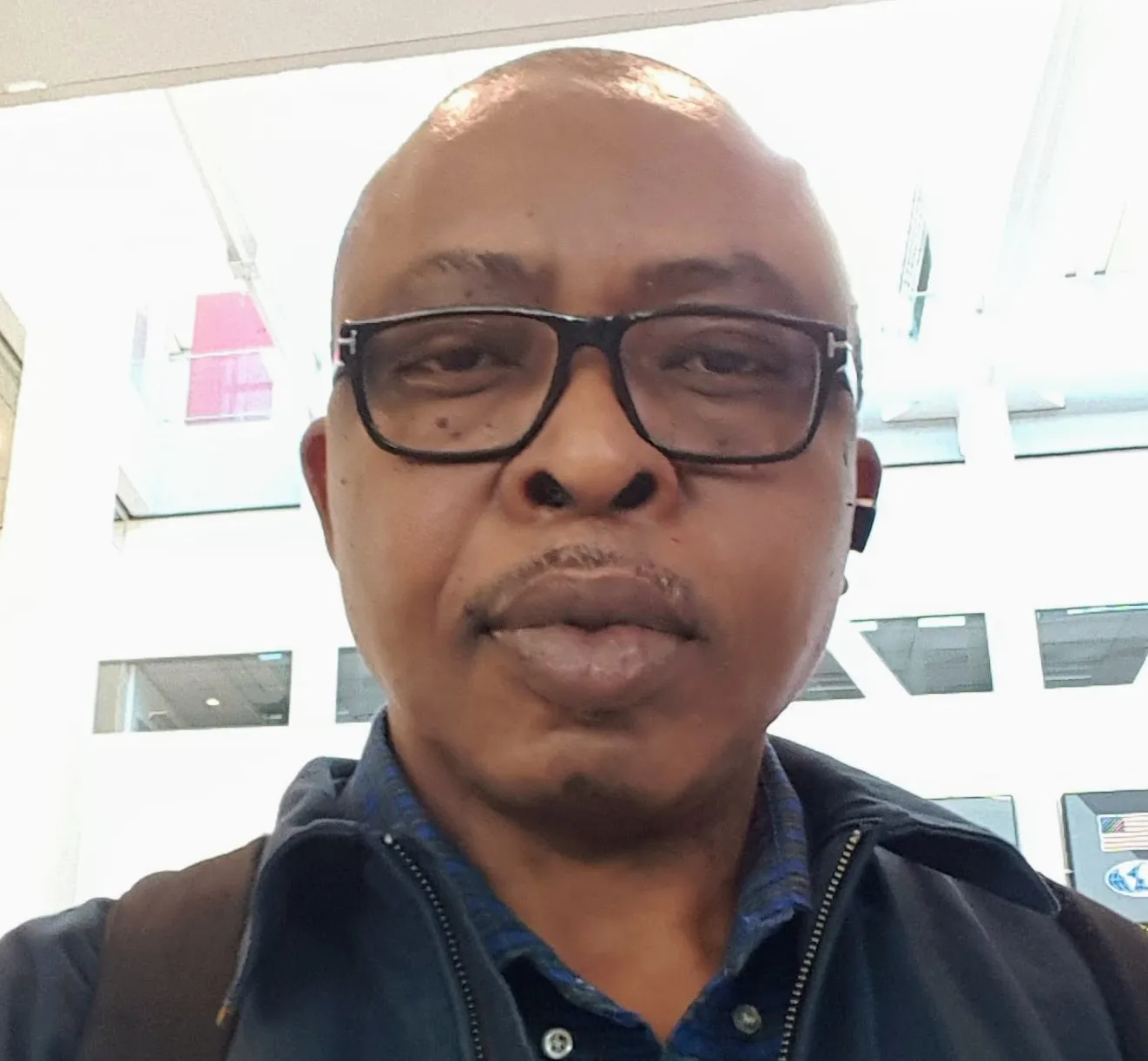
 Sign in with Google
Sign in with Google 
